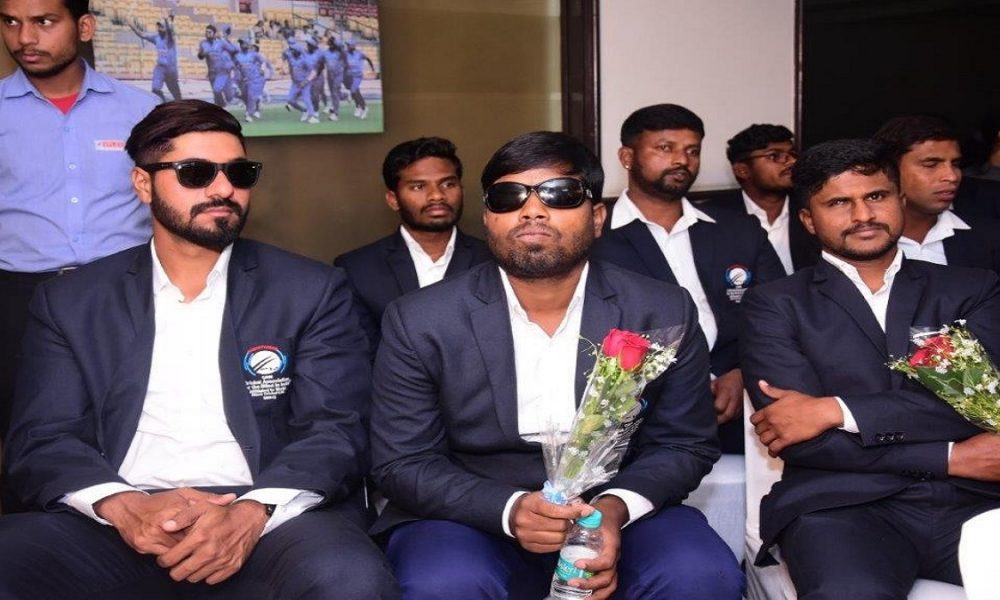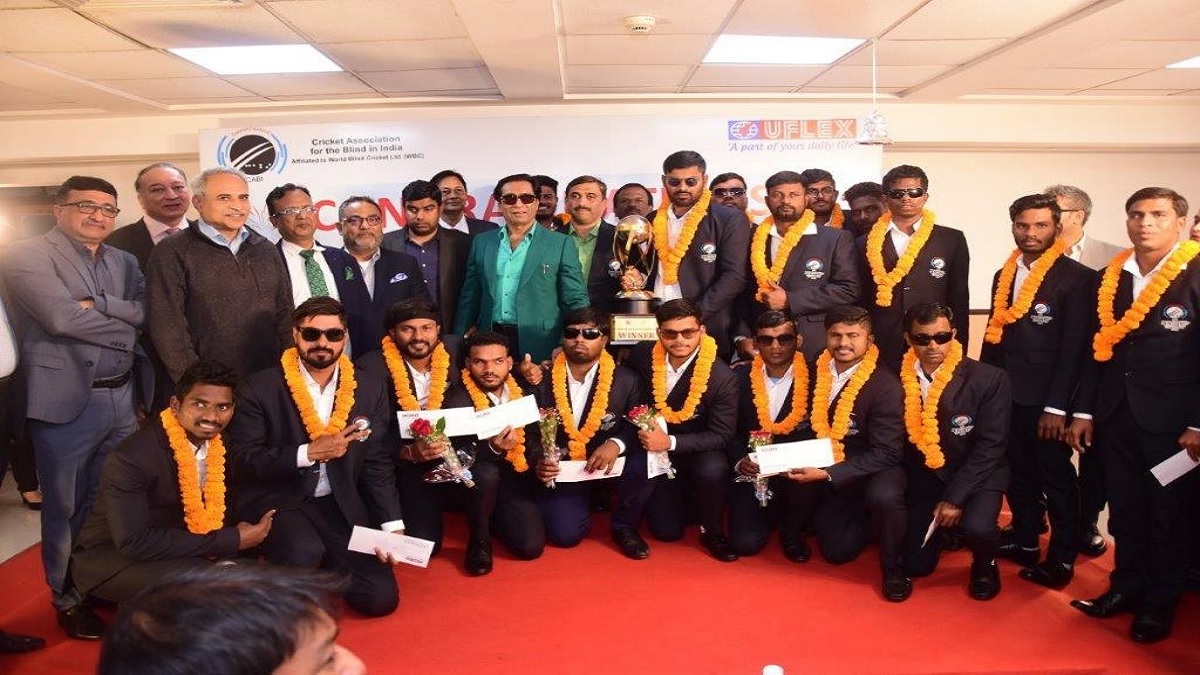
New Delhi: On a misty morning this week, near-blind cricketers who helped India complete a hat-trick of World Cup wins, drove into the offices of Uflex, India’s largest flexible packaging company.
The cricketers wore their national blue colours, many had goggles to hide their discomfort. The players, led by Indian skipper Ajay Kumar Reddy, were garlanded with bright marigold flowers.
The cricketers were all smiles, it was a proud moment for them. The players were further delighted when Uflex chairman Ashok Chaturvedi offered each of them a cheque of Rs 51,000. Chaturvedi also wrote a cheque for Rs 50 lakhs for the Cricket Association of the Blind, or the CAB.
For sports cognoscenti, CAB stands for the Cricket Association of Bengal (CAB), a powerful state cricket association affiliated to the Board of Control for Cricket (BCCI) in India, the world’s richest.
Very few in India know CAB also stands for a body of blind cricketers. Actually, no one cares for blind cricket, played by near-blind cricketers.
The players are used to the humiliation. They know there is no cash in their component of the game. Else, cricket always draws tons of cash in India.
Worse, the cash component the cricketers and their body got from Uflex was the highest for the players who sport the blue-coloured Indian jersey but are not called the Blue Billion Express, a term only reserved for the much-popular national selection that is currently playing a test series with Bangladesh.
The near-blind cricketers remembered that the cash prize they got from the Indian government was less than Rs 5 lakhs. In Indian sports, it is a pittance. It is the kind of cash event organisers pay to get cricketers who have played for India in the 80s.
Current cricketers charge huge sums for endorsements, huge sums for attending events.

The hat-trick of victories for the blind cricketers happened around the time when the BCCI conducted an auction of players for the world’s richest Indian Premier League (IPL). An estimated Rs 167 crore was spent by the ten franchises for signing 80 players in the 87 available slots for IPL 2023. The aggregate of Rs 167 crore was the highest spent in an IPL mini-auction, surpassing the Rs 145.3 crore in 2021. That this was the first mini-auction to feature ten teams contributed to the sum.
The blind cricketers reminded themselves that 10 out of a team of 17 are jobless, and have been asking for jobs for more than a year. Worse, in their meetings with the Union Sports Minister Anurag Thakur, they talked more about jobs and less about the sports that’s almost a religion in India.
“After winning many World Cups, some of the players are still jobless. We are not considered for Khel Ratna and Arjuna awards. Please recognise us,” said Reddy, the captain. Reddy said it is becoming difficult for the jobless cricketers to continue with the game. “If the BCCI wants, we could make cricket our profession and stick only to the game like players from Australia, South Africa and England.”
For the first time, the blind cricketers were sponsored by IndusInd Bank. Earlier, they had no sponsors.
Sunil Ramesh, who scored three centuries in the World Cup where India defeated Bangladesh in the finals, said financial security is a must for the cricketers. “It is high time we get something from the BCCI,” said Ramesh.
India had beaten Bangladesh by 120 runs to win the T-20 World Cup final in Bengaluru on Saturday. The Indian teams had beaten Pakistan in the earlier two finals in 2012 and 2017.
The world’s richest cricket board is yet to make up its mind if it wishes to support the near-blind cricketers. Top board members have their eyes on IPL, considered a big buck’s tournament.




